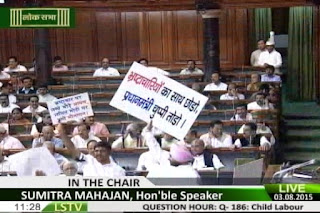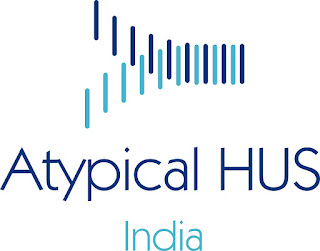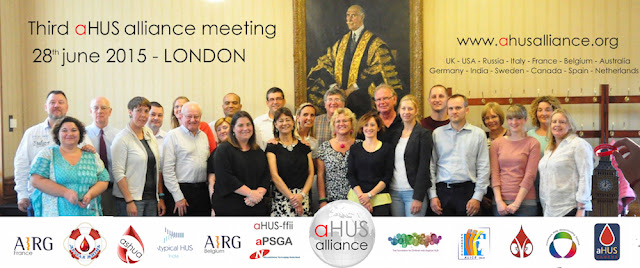Search for dialysis centres here
 Log in to explore the world's most comprehensive database of dialysis centres for free!
Log in to explore the world's most comprehensive database of dialysis centres for free!

Kamal Shah
Hello, I'm Kamal from Hyderabad, India. I have been on dialysis for the last 13 years, six of them on PD, the rest on hemo. I have been on daily nocturnal home hemodialysis for the last four and half years. I can do pretty much everything myself. I love to travel and do short weekend trips or longer trips to places which have dialysis centers. Goa in India is a personal favorite. It is a great holiday destination and has two very good dialysis centers.
E-mail: This e-mail address is being protected from spambots. You need JavaScript enabled to view it
Don't blame us for being 'non-compliant' - it is you who have failed us
"At the NKF Spring Clinicals meeting in March, a comment I was told that someone made at the microphone during a session still bothers me months later. The gist of it was: “Why does all of the responsibility for improving outcomes fall on clinicians—where is the patient in all of this?” [Good point, but it goes on…] “I lose money if my patients don’t reach the quality targets. Why can’t we fine the patients if they don’t do their part?”—and audience members applauded!"
This attitude among some nephrologists (not all are like this, of course) is extremely bothersome. No one chooses to be on dialysis. It is something thrust upon them. How can anyone have such a callous attitude towards them?
The entire healthcare system has failed us dialysis patients. Look at the amount of innovation that has happened in cardiology and compare that with the innovation that has happened in dialysis. Only one word can describe this: pathetic.
The situation in India in terms of problems that patients have is far worse. Add all the problems that patients in developed countries have and add the fact that you need to pay out-of-pocket for everything and the cocktail becomes that much more heady. When there are better options available in the world today, we are still expected to make do with something that is hardly optimal.
And yet, we are called non-compliant!
I am not finding fault with nephrologists. The problem is the system. Healthcare in India is a different beast. The humungous population, the lack of resources, non-protocolised delivery and the very low patient to nephrologist ratio all contribute in some measure to the problem.
All I am saying is that healthcare providers need to be a little more sympathetic to these problems. Treat us with a little more dignity, a little more compassion. That should be doable, right?
... http://www.kamaldshah.com/2015/08/dont-blame-us-for-being-non-compliant.html
A possible solution to end Parliament disruptions
The recent Parliament session was a complete wash-out. Disruptions by the opposition, led by the Congress prevented important bills from being passed. Apart from the huge loss of money incurred by running the houses of Parliament without any business being transacted, there has been an incalculable loss in terms of opportunity by not passing important bills.
Who is really to blame?
The supporters of the BJP lay the blame squarely on the shoulders of the Gandhis who have such a pathological hate for Prime Minister Narendra Modi that they are loath to see him become successful in anything. The Congress, on the other hand says that they are not doing anything the BJP did not do when it was in the opposition. This is not entirely devoid of truth. Yes, of course, if they did something wrong, it does not mean you do it as well!
This cycle of disrupting Parliament needs a permanent solution.
Consider what Parliamentarians earn. Apart from a monthly salary and allowances of Rs. 1.3 lakh per month, they get a daily allowance of Rs. 2,000 to attend Parliament. All this is tax-free. Apart from this, "MPs can travel anywhere in the country by rail, first class, and get 34 free air tickets for themselves or a companion a year. Spouses of MPs can travel free by air from their residence to New Delhi eight times a year when Parliament is in session and unlimited number of times by rail."
What needs to be implemented strictly is a pro-rata system. Pay only for the work done. For example, if the official number of hours Parliament was supposed to function was x, of which due to various disruptions, it worked only for y, pay only y/x of all the above mentioned amounts. The important thing is that all the allowances, air tickets, household expenses etc. should all be paid pro-rata. Just doing this for the salary would hardly achieve anything.
As it is, most MPs are wealthy enough for this to make much of a difference. So, we need to be very stringent about these conditions.
There has been some talk about such a proposal, to which there already has been some opposition.
We need to implement this quickly. The country has already lost a lot of money due to our inconsiderate and egoistic leaders.
... http://www.kamaldshah.com/2015/08/a-possible-solution-to-end-parliament.html
Announcing India's first Atypical HUS Registry!
Atypical Hemolytic Uremic Syndrome is an ultra-rare disease affecting a small number of patients world-wide. This devastating disease affects children and adults and without proper management and treatment by experts can lead to kidney failure and in some cases, even death.
Very little data exists about this disease in India. No published data about the incidence and prevalence of this disease is available. It is very important for some database to be available because without this, it is difficult to make a case for pharmaceutical companies, healthcare providers and importantly, the government to take any decisions regarding this disease.
This is my primary disease, the disease that caused my kidneys to fail. I founded The Atypical HUS India Foundation a few months back which is now a registered Trust. Through this foundation, I have started a registry for Atypical HUS Indian patients.
I am requesting patients and family members to please spare a few minutes and fill out the registry form so that we can make a small beginning in collecting some data about this disease in India.
The link to the registry form is here.
Please share this with anyone you know who is afflicted with this disease or has a family member or friend who has this disease and request them to fill out the form. No personal data would be shared with anyone. The data will only be used for analysis. Thanks!
... http://www.kamaldshah.com/2015/08/announcing-indias-first-atypical-hus.html
I will always regret not taking up medicine after my 10th
I was at one our dialysis centres this Saturday afternoon. This centre is inside a hospital. I did my usual round of the centre, talking to a few guests, inspecting the facility and then settled down at the Duty Doctor's desk. A few minutes later, a patient was wheeled into the unit on a stretcher. There was commotion all around. The patient was critical and needed to be put on a ventilator and dialysed. The patient was shifted onto the bed and a ventilator was brought in. A doctor in blue scrubs followed. Over the next half an hour or so, the patient was put on the ventilator by the doctor, presumably an anesthetist.
For the first time, I had seen someone being put on a ventilator. The way the anesthetist went about the whole process really blew me away. He remained calm and composed throughout the process. At times, there was panic among the other staff from the ICU who had accompanied him. But he remained at ease, skillfully going about his job. He realised that a mistake could cause the life he was literally holding in his hands to slip away.
A few minutes later, dialysis was begun.
When I was nearing completion of my 10th, I was very clear in my head. I wanted to take up engineering. It was primarily driven by my hate for biology. I would do anything to not study biology any further. Looking back, I feel that not enough counselling is available in India to help you decide. Also, at that age, I am not really sure how many people are mature enough to make up their minds on such an important aspect.
However, it was not until a few years after I was diagnosed with kidney disease myself in 1997 did it dawn on me that I would have really loved being a doctor. Maybe, if I was not diagnosed with kidney disease, I might not have felt that way!
When you are on dialysis, you see a variety of doctors. Your life practically revolves around doctors. I genuinely believe there is no feeling greater in this world than that felt by a doctor when a patient thanks you profusely for relieving him of a major problem. It is not the financial reward, it is not ego, it is not power. It is a simple connect between two human beings. This connect is impossible in high paying software jobs, in closing huge business deals, in financial services and - you're not going to believe I said this - in making great food!
Some people argue that by being in a healthcare company, the impact that can be made is much greater since you are bringing quality healthcare to a lot more people than that possible by being a doctor. I beg to differ. For me, it is all about the personal connect. That 30 seconds of the warm, fuzzy feeling in your heart when you look into your patient's eye and see the genuine gratitude. No other job in the world can rival that.
... http://www.kamaldshah.com/2015/07/i-will-always-regret-not-taking-up.html
Updates from the aHUS UK and aHUS alliance meetings in London
The biggest takeaway for me was that there are four new drugs in the pipeline to treat Atypical HUS. Dr. Wynne Weston-Davies of Volution Immuno Pharmaceuticals presented this information:
- ALN-CC5 from Alnylam
- Compstatin from Apellis
- OMS721 from Omeros
- Coversin from Volution
This should ideally result in a reduction of the price of Soliris from Alexion which would mean a better chance of access to it as well. Competition is always a good thing!
For more details on this, please click here
Each of these drugs acts in different ways but the end result would be similar - treatment of aHUS, at initial occurrence, subsequent occurrences, for kidney transplants etc. Another advantage of some of these drugs is that they could be administered by sub-cutaneous injection or even orally rather than the IV infusions that Soliris needs. There was also some talk about Alexion working on a sub-cutaneous version of Soliris.
All these drugs are still in early stages of development and clinical trials and may be years before they will be usable by patients in India. However, at least something is happening!
I also learnt of a new mutation that is implicated in aHUS - DGKE. This mutation unfortunately is not treatable by Soliris since it is not associated with complement activity.
Another important discussion that was had was the availability of complement inhibitors (currently only Soliris) in different countries. Here is a summary of the information:
Ideally, any patient should have access to a complement inhibitor (currently only Soliris) without having to pay out of pocket:
- At initial diagnosis
- Subsequent episodes
- During a Transplant and after to maintain the transplanted kidney
The following table summarises the situation in different countries with respect to this:
| Country | Status |
|---|---|
| France | Full access |
| Italy | Full access |
| UK | Full access |
| Germany | Full access |
| USA | Full access |
| Russia | Full access |
| Belgium | Available for those with current aHUS activity, not available for transplants |
| Spain | Available with some restrictions |
| Canada | Available in some provinces and to others on a case by case basis |
| Netherlands | Full access, future uncertain |
| Australia | Available only for flairs and for a maximum of 12 months |
| India | No access |
We had a good discussion on how to improve situations in countries where access is not complete.
Another discussion was had on the possibility of withdrawing Soliris and monitoring closely. This would reduce the cost per patient enabling more patients to get access to the drug. Patients were wary of this due to the risks involved.
Prof. Tim Goodship presented the history of aHUS treatment in the UK and said that currently a National Service has been created temporarily being managed by his team at Newcastle upon Tyne. The National Service is responsible to decide which patients should be given Soliris.
Overall, it was a great opportunity to meet so many others from different countries, each fighting the same battle. Here's a picture of the entire team:
... http://www.kamaldshah.com/2015/07/updates-from-ahus-uk-and-ahus-alliance.html
 Professional dialysis recruitment
Professional dialysis recruitment





